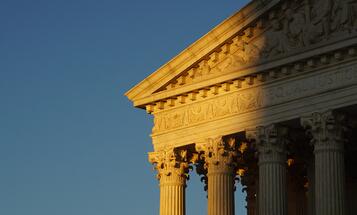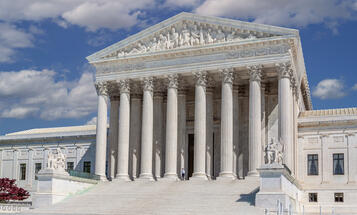
Stiglitz on the Political Dimensions of Inequality
In an "Opinionator" piece in Sunday's New York Times, Joseph Stiglitz made the important point that economic inequality is the result of political decisions, not inescapable global conditions.
His evidence is that while certain countries (the U.S. lead among them) have allowed the gap between the haves and have-nots to balloon in recent decades, others have managed to narrow the divide.
And, his article contains an extremely important sentence about the relationship between politics and economics:
Rising inequality reinforces itself by corroding our political system and our democratic governance.
This is the vicious cycle that Demos describes in our Stacked Deck report.
And, it is an important part of what's at stake when the Supreme Court considers whether to allow a tiny fraction of the population—wealthy donors who can afford to give more than $123,200 to political candidates, parties, and PACs over a two-year period—to increase its stranglehold on American politics.
Recent Demos and U.S. PIRG research shows that lifting the cap on "aggregate contribution limits," as plaintiffs are pressing the Court to do in a case called McCutcheon v. FEC, could lead to more than $1 billion in "McCutcheon Money" from elite donors through 2020, tilting the balance of power further in their direction.
In our amicus brief to the Court in the case, Demos—along with a diverse array of constituency groups representing 9.4 million members and supporters—argues that government in the U.S. is already too responsive to large contributors; that this responsiveness is apparent to the citizenry and drives low public regard for political institutions that threatens democratic legitimacy; and that striking aggregate limits will increase this "appearance of corruption" and make matters worse at an especially inopportune time.
Although common sense and settled precedent regarding corruption and its appearance direct the Court to stay its hand and uphold the limits, I hope the justices keep Stiglitz's last paragraph in mind as well:
I see us entering a world divided not just between the haves and have-nots, but also between those countries that do nothing about it, and those that do. Some countries will be successful in creating shared prosperity — the only kind of prosperity that I believe is truly sustainable. Others will let inequality run amok. In these divided societies, the rich will hunker in gated communities, almost completely separated from the poor, whose lives will be almost unfathomable to them, and vice versa. I’ve visited societies that seem to have chosen this path. They are not places in which most of us would want to live, whether in their cloistered enclaves or their desperate shantytowns.
There is nothing in the Founders' view of the First Amendment that would drive us towards this fate, and I can only hope the current justices see that as clearly as the American people surely do.



